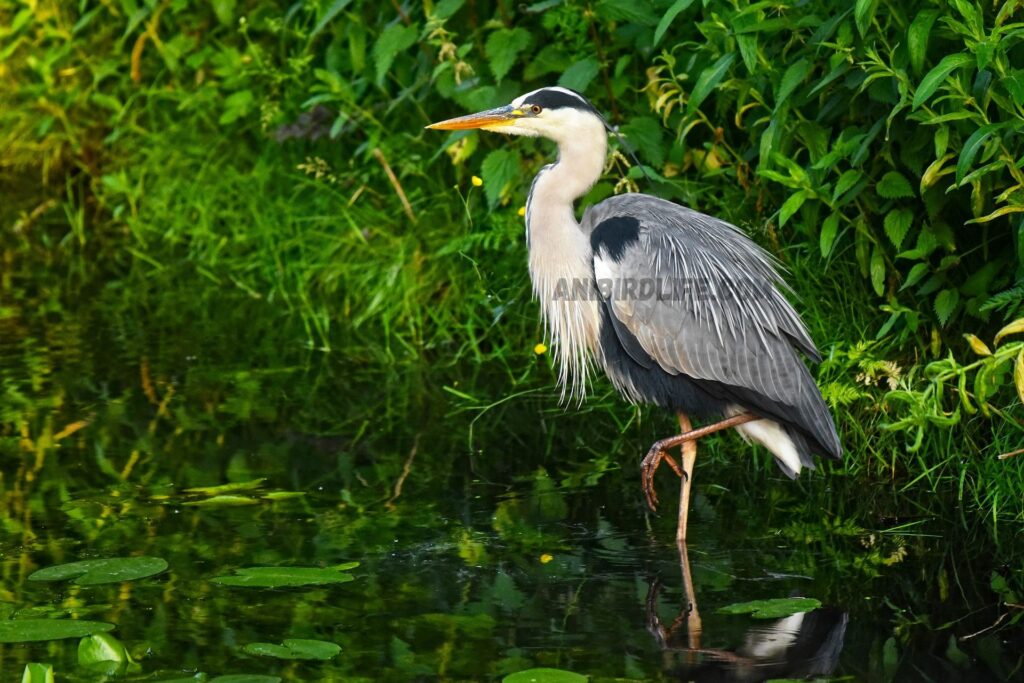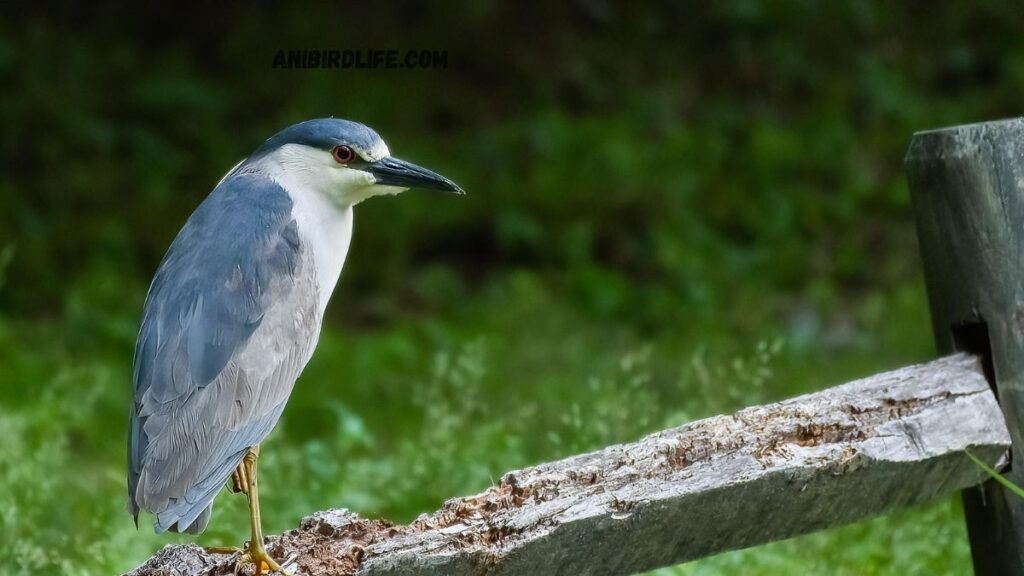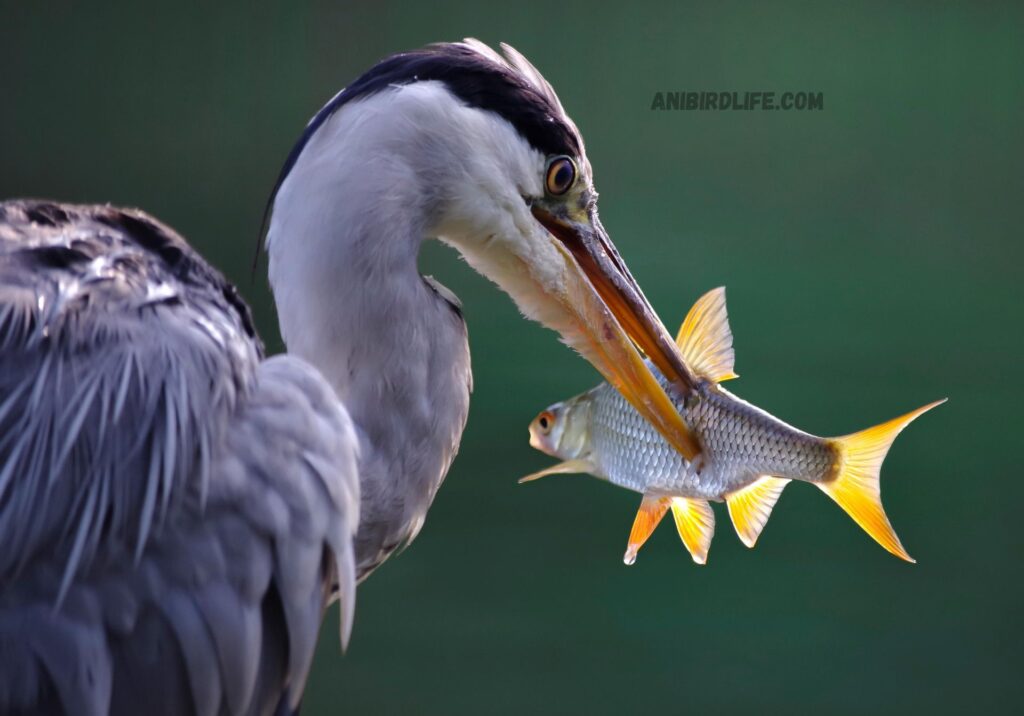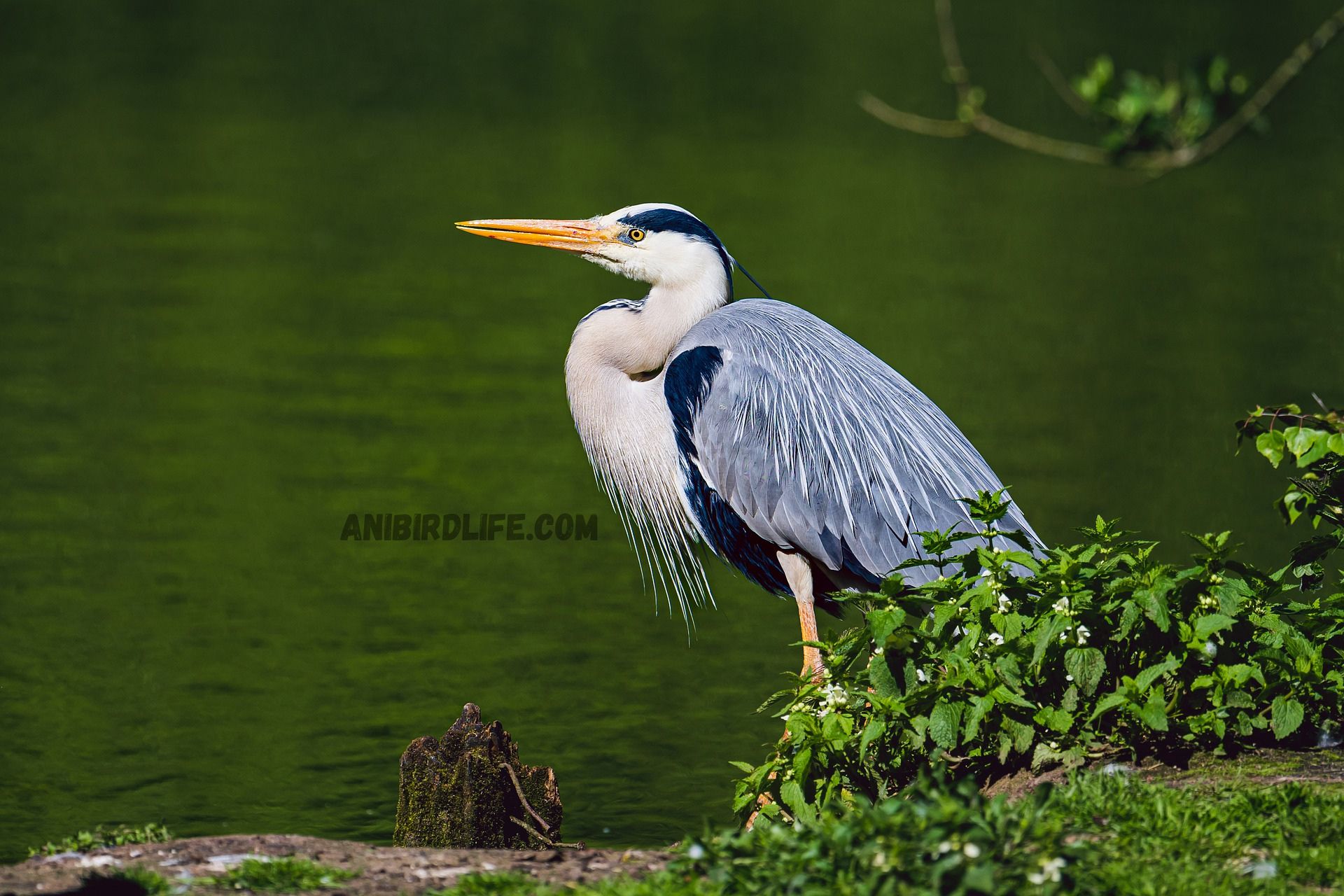Herons are often seen as graceful, long-legged waders silently stalking fish and amphibians in wetlands. However, these majestic birds also have a surprising side to their predatory habits. In addition to fish and frogs, herons are also known to prey on other birds.
In this comprehensive article, we will explore Do Herons Eat Birds? we will also explore the feeding habits of herons, including their occasional predation on birds, and uncover the reasons behind this behavior.
Understanding the Heron’s Diet (Do Herons Eat Birds?)
Herons are classified as carnivorous birds, meaning their diet primarily consists of meat. Their typical prey includes fish, frogs, insects, crustaceans, and small mammals. Herons are opportunistic hunters, and their diet can vary significantly depending on the availability of food in their habitat.
However, under certain circumstances, they have been observed hunting birds, an act that seems surprising to many birdwatchers and wildlife enthusiasts.
Why Do Herons Eat Birds?
Herons generally prey on fish and aquatic animals, but why do they sometimes hunt other birds? There are several reasons for this behavior:
- Food Scarcity: During periods when their usual prey is scarce, herons may turn to other birds as a food source. This opportunistic behavior helps them survive when fish or other aquatic prey is unavailable.
- Nesting Season: During breeding season, herons may become more aggressive and territorial. In some cases, they hunt and eat young birds or nestlings of other species to reduce competition for resources.
- Energy Needs: Hunting birds can provide herons with a large and protein-rich meal, giving them the energy they need to thrive, especially when feeding young chicks or migrating.

Which Birds Do Herons Hunt?
Herons do not typically hunt adult birds but tend to target smaller, more vulnerable species. Some of the birds they may prey on include:
- Ducklings: Young ducks are easy prey for herons due to their size and inexperience.
- Songbirds: Nestlings and fledglings of various songbird species are sometimes taken by herons when they are too weak to escape.
- Waterfowl: Small, young waterfowl such as coots or moorhen chicks can be vulnerable to heron predation.
- Pigeons: In urban areas, some herons have been known to target young pigeons nesting near water bodies.
While birds do not make up a significant portion of their diet, herons are adaptable hunters who take advantage of easy opportunities.
How Do Herons Hunt Birds?
Herons have evolved to be expert hunters, and their technique when catching birds is not unlike their method of catching fish. They rely on stealth, patience, and precision. Here’s a breakdown of how herons hunt birds:
Stealthy Approach:
Herons use their long legs to wade quietly through shallow waters or grasslands. They remain perfectly still for long periods, waiting for the right moment to strike.
Lightning-Fast Strike:
Herons have long, sharp beaks that they use like a spear. When a bird comes within striking distance, the heron lunges forward, delivering a powerful and accurate blow to either kill or immobilize its prey.
Swallowing Whole:
Once a heron has caught its prey, it will usually swallow the bird whole. Herons have flexible necks and can swallow prey much larger than what might seem possible for a bird of their size.
Impacts on Ecosystems of Herons Eat Birds
Herons, as top predators in their ecosystems, play an important role in maintaining ecological balance. By preying on fish, amphibians, and even birds, they help control populations of these species, preventing overpopulation. However, when herons begin preying on other bird species, it can have mixed consequences:
Reducing Nesting Bird Populations:
During the breeding season, herons may have an impact on the local populations of nesting birds. By preying on nestlings and young birds, they can reduce the number of fledglings that survive to adulthood.
Balancing Competition:
Herons help maintain the balance of species within an ecosystem. By occasionally preying on other birds, they reduce competition for resources like food and nesting sites among bird populations.
Do All Species of Herons Eat Birds?
While many heron species are capable of hunting birds, this behavior is more commonly observed in larger species with the size and strength to tackle such prey. Notable species that have been documented preying on birds include:
Great Blue Heron (Ardea herodias):
This large heron is known to occasionally prey on small birds, especially during times of food scarcity.
Grey Heron (Ardea cinerea):
Found across Europe, Africa, and Asia, the grey heron has been observed preying on birds, particularly young waterfowl and nestlings.
Black-crowned Night Heron (Nycticorax nycticorax):
Though smaller than some other herons, the black-crowned night heron is a skilled and opportunistic hunter who has been known to eat birds.

Goliath Heron (Ardea Goliath):
The largest heron species, the goliath heron may prey on birds in addition to its usual diet of large fish.

Is This Behavior Harmful to Other Bird Populations of Herons Eat Birds?
In most cases, heron predation on birds is not a significant threat to bird populations. While individual nestlings or young birds may fall prey to herons, this is a natural part of the predator-prey dynamics in ecosystems. However, in areas where heron populations are unusually high, or where human activities have altered the balance of ecosystems, heron predation could contribute to declines in certain bird species.
It’s important to note that herons do not exclusively hunt birds, and bird predation only occurs when other food sources are limited or during specific circumstances such as breeding season.
Conclusion (Do Herons Eat Birds?)
Herons are fascinating predators with complex hunting behaviors that sometimes include preying on other birds. While this is not their primary food source, bird predation can occur when conditions drive them to seek alternative prey.
Understanding the diverse diet of herons allows us to appreciate their role in maintaining the ecological balance of wetlands and other habitats. Their opportunistic nature makes them adaptable hunters, capable of taking advantage of a wide range of food sources, including birds.
Frequently Asked Questions (FAQs)
1. Do herons eat birds?
Herons mainly consume fish, amphibians, insects, and small mammals. However, in certain circumstances, such as food scarcity or during the breeding season, they may prey on birds, especially young or vulnerable ones like ducklings or nestlings.
2. What types of birds do herons hunt?
Herons typically target smaller, defenseless birds. They have been observed preying on species such as ducklings, young pigeons, small waterfowl, and the nestlings of songbirds. They usually do not hunt adult birds.
3. How do herons catch birds?
Herons hunt birds much like they hunt fish. They approach their prey with stealth, remaining motionless until they can strike with their sharp beak. Their fast and precise strikes allow them to catch birds, often swallowing them whole.
4. Are all heron species capable of hunting birds?
Not all herons commonly hunt birds, but larger species like the Great Blue Heron, Grey Heron, and Goliath Heron are more likely to prey on birds when the opportunity arises. Smaller species may do so less frequently.
5. Is heron predation harmful to other bird populations?
Heron predation on birds is generally not harmful to overall bird populations. While individual nestlings or young birds may fall prey, this is a natural predator-prey relationship and part of the ecosystem’s balance. It only becomes a concern if there is an imbalance in the ecosystem, such as an unusually high heron population.
6. Why do herons eat other birds when they usually eat fish?
Herons are opportunistic hunters. When fish or their usual prey is scarce, or during times of high energy demand (like during the breeding season), herons may hunt birds to meet their nutritional needs.
7. What time of year are herons more likely to hunt birds?
Herons are more likely to hunt birds during the breeding season when they need extra energy for raising chicks. They may also hunt birds if other food sources are scarce during certain seasons.
8. Do herons swallow birds whole?
Yes, herons have a remarkable ability to swallow prey whole, including birds. Their flexible necks and strong throat muscles allow them to swallow relatively large prey.
9. Can herons be a threat to backyard bird feeders?
Herons usually do not threaten backyard birds that visit feeders. They prefer aquatic environments where they hunt fish and amphibians, though they may prey on nearby birds if there are nestlings or fledglings in the vicinity.
10. How can I protect young birds from heron predation?
To protect young birds from herons, ensure their nests are placed in areas where herons cannot easily reach them, such as dense vegetation or covered areas. Keeping water bodies away from nesting areas can also reduce the likelihood of herons hunting nearby.
